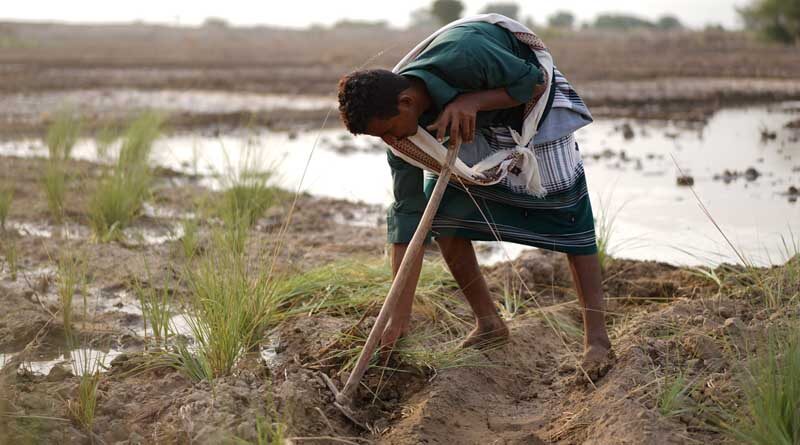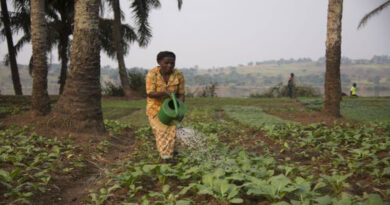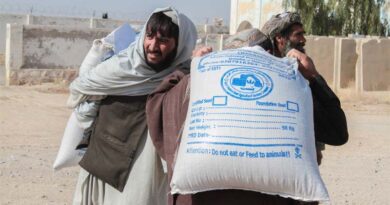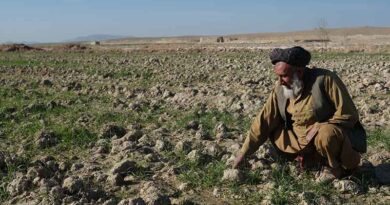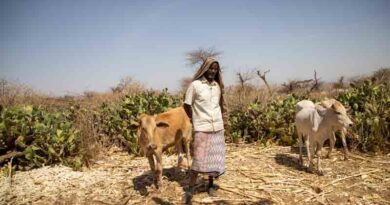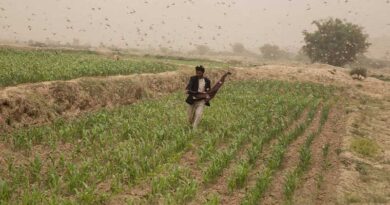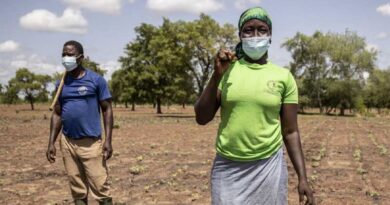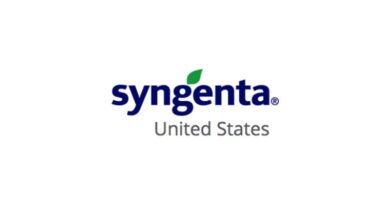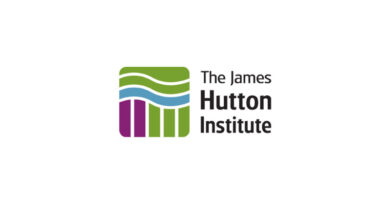Yemen: FAO welcomes an additional $150 million multi-agency contribution from the World Bank to strengthen resilience and address growing food insecurity
13 December 2022, Rome: The Food and Agriculture Organization of the United Nations (FAO) has welcomed an additional $150 million multi-agency contribution provided by the World Bank to scale up restoration of rural livelihoods, boost household food production and provide emergency assistance to vulnerable households in Yemen.
Since 2021, the $127 million Yemen Food Security Response and Resilience Project (FSRRP) has been jointly implemented by FAO, the United Nations Development Programme (UNDP) and the World Food Programme (WFP). The International Committee of the Red Cross (ICRC) is now joining the UN agencies in the implementation of the project.
The additional funding was provided in response to a sharp deterioration in food security conditions in Yemen.
The Integrated Food Security Phase (IPC) Acute Food Insecurity projection update, conducted in September 2022, indicates that approximately 17 million people, or over half of the country’s population, will likely experience high levels of acute food insecurity (IPC Phase 3 or above) between October and December 2022. Of these, 6.1 million people are classified in IPC Phase 4 (Emergency).
FAO will receive $79.4 million from the additional financing. This adds to the $61.1 million initially allocated to support FAO activities aimed at increasing production of crop, livestock and fish products, including backyard and garden production; promoting climate-smart agriculture; strengthening local agrifood systems; and establishing national agricultural value chains.
“We are grateful to the World Bank for this important contribution. Our long-standing cooperation helps to ensure an integrated approach to tackling the food security issues in Yemen by strengthening agriculture as both an emergency measure to produce locally and a middle- to long-term source of food and jobs,” said FAO Director-General QU Dongyu. ”This additional financing by the World Bank is vital to building resilience among smallholder farmers in Yemen, boosting local food availability and strengthening local agrifood systems, which have been weakened by conflict, the impacts of the COVID-19 pandemic and climate shocks,” he added.
FSRRP delivers support to vulnerable households through cash-for-work opportunities and nutrition support for mothers and children. Additionally, the project provides targeted livelihoods support that boosts agricultural production in the short term, while enhancing agriculture’s contributions to food security and economic activity over the longer term and building capacity for food security management.
Agriculture’s potential
Agriculture continues to suffer from the effects of the conflict and the COVID-19 outbreak jeopardizing its potential to become Yemen’s most important economic sector. As a result, there are limited livelihoods opportunities available and the country heavily relies on commercial imports to meet domestic demand for many agricultural products including wheat, which is the Yemen’s staple food. The food security situation has been further exacerbated by the effects of the war in Ukraine including the disruption of shipments of wheat.
Currently the country’s agricultural sector only meets around 20 percent of its food needs due to limited agricultural land and water resources and poor agricultural practices compounded by years of war, high fuel prices, and water scarcity.
Also Read: GROWiT launches India’s first protective farming eCommerce portal
(For Latest Agriculture News & Updates, follow Krishak Jagat on Google News)

